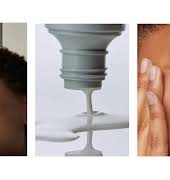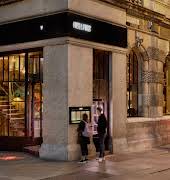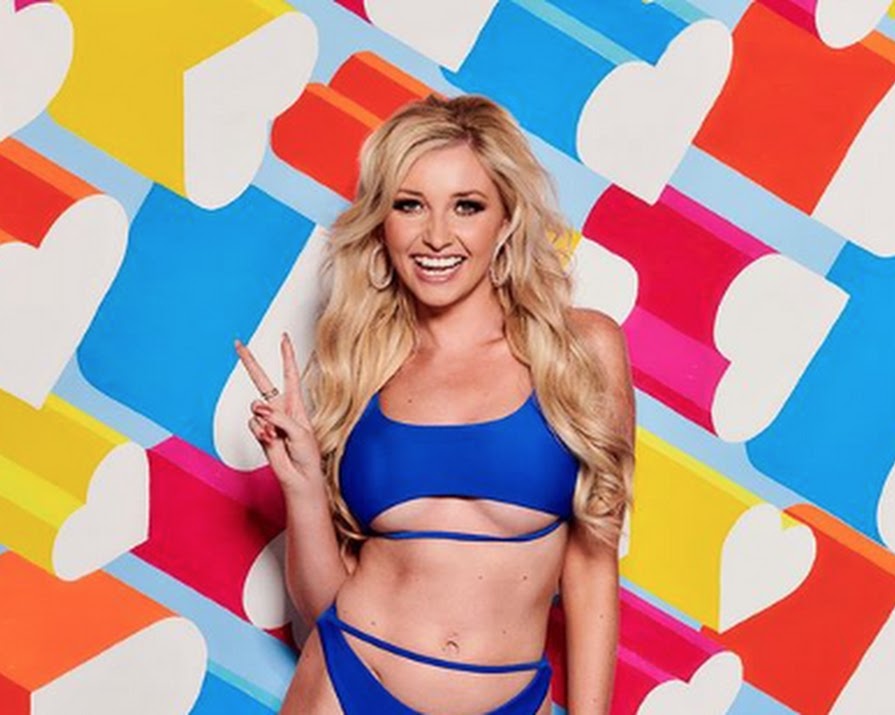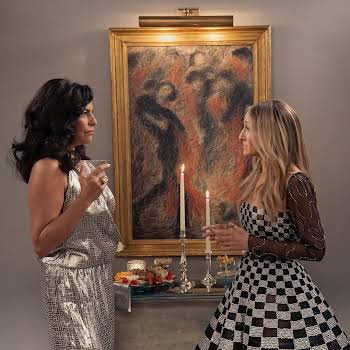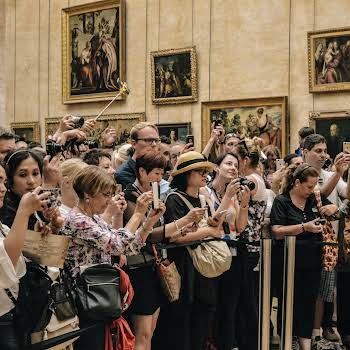
By Edaein OConnell
02nd Jul 2019
02nd Jul 2019
Has the online commentary gone too far surrounding ‘Love Island’ contestant Amy Hart? We investigate…
Is it kind of sad that I will forever associate the summers of 2018 and 2019 with Love Island?
Like a bad heat rash, the country has been plagued by the love trials and tribulations of good looking 20-somethings on the island of Majorca.
I have been gripped. These people compensate for the lack of love in my life and I happily watch while their love lives blossom or crumble from the comfort of my couch. They hurt and deal with the consequences but I don’t have to feel anything.x
Is it this separation that brings many of us to openly comment on these individuals without thinking, without remorse, without empathy?
Characters
The very fact they live behind a TV screen almost makes them seem like characters. Anton or Lucie or Tommy aren’t actually real individuals, they are caricatures.
When they leave the villa they turn back into the person the truly were. And we separate the two just like we separate Sandra Bullock from the mother in The Blind Side.
The difference is the “stars” of Love Island aren’t actors or actresses. They are real people in a shut-off, reality-driven world. I will be the first to put my hand up and say I have commented on the contestants in numerous group chat conversations. I have probably tweeted about them and lambasted them with colleagues in our morning de-brief.
However, it’s the attention surrounding Amy Hart where a deep sense of unease and discomfort start to kick in for me.
For those you of not embroiled in the Love Island world here is a quick synopsis:
- Amy and Curtis have been a couple since the beginning.
- Amy is 26 and has never had a boyfriend (Side note: Nothing wrong with this).
- Amy and Curtis were cute and wholesome and could have been this year’s Dani and Jack. Everybody loved them.
- Amy started to show a different, slightly more bitchy and jealous side towards contestant Lucie. She started saying and doing some weird things.
- The public started to turn and Amy and Curtis quickly fell out of favour. They were one of the bottom three couples in the public vote.
- Curtis may or may not be playing a game, but it seems his head is turning. On last night’s episode, he voiced his concerns over a lack of sexual attraction with Amy.
- The public is delighted.
Online ruthlessness
It’s time for a full disclaimer: I am not Amy’s biggest fan. She could have handled certain situations better. Often she has acted childishly, which bears the question; are the producers editing her to look that way?
Nevertheless, the online commentary on Amy has been ruthless. From comments on looks, her teeth, her hair, her walk, her past, her personality – it’s endless. Following Monday’s show, a particularly cruel tweet surfaced comparing her to a somewhat gruesome figure with inflated red lips following the lipstick challenge.
The Love Island team say there is a proper aftercare system in place for the islanders, with psychologists on hand to help and assist you. Life inevitably changes drastically upon leaving the confines of the island, but this care won’t protect them fully from the torrent of comments.
“For anyone to hear the persson you are seeing isn’t attracted to you, is a severe blow.”
What worries me most is how clear it is to see that Amy has certain insecurities she has not dealt with. From the beginning of the series, she voiced these doubts. She was hesitant because she never had a boyfriend because, she said, boys didn’t fancy her and she always presumed they would fob her off.
It seems her worst fears were realised when Curtis claimed the aspect missing from their courtship was a sexual attraction. For anyone to hear the person you are seeing isn’t attracted to you, is a severe blow. Whether we like to admit it or not, attractiveness and looks are often central to our self-confidence, especially in your teens and 20s..
Is it part of the parcel?
In Amy’s case, not only will she hear this from Curtis himself, but she’ll also have to listen to the public who feel they understand the how’s and why’s of it all. And the public doesn’t hold back.
Just imagine being Amy when she leaves the villa. Unsure, you walk out into a world you have had no dealings with for eight weeks. A group of strangers sit you down to explain what has been going on, what has been said and try, in some way, to prepare you for an onslaught.
Then, you go on social channels to find your name splashed repeatedly. Strangers commenting on your face or your body. Telling you this is the reason you have never had a boyfriend.
“These people are no different to you and me and they have feelings and these hateful comments have ramifications we can’t even begin to understand.”
Many will say you chose this. Because if you put yourself in the spotlight, criticism and abuse is part of the parcel.
Still, when did we cross the line?
Mental health
In a real-life situation, if the judgments of Amy were said to someone’s face, there would be furore and disgust. Behind a phone or a screen, however, there is a free-for-all commentary. One without repercussions.
Concerns over the online treatment of contestants have been voiced by many who themselves have been a part of the reality realm. Former Geordie Shore star Vicky Pattinson spoke out against the online hate in a recent Instagram post.
In it, she said: “Have we not witnessed the detrimental and irreversible effect our thoughtless words and reckless opinions can have on someone’s mental health? Why are people still attacking these islanders with such verbal vitriol?”
She continued: “These people are no different to you and me and they have feelings and these hateful comments have ramifications we can’t even begin to understand.”
The post was in part a tribute to two former islanders, Mike Thalassitis and Sophie Gradon, both of whom died by suicide. No one can say exactly what was going through the minds of these two youthful, exuberant people. It would be unfair to place the blame on Love Island but the irrevocable change to their life cannot be ignored.
Dangerous side
Curious, I asked a group of friends what they thought of the Amy saga and the somewhat expected level of abuse contestants receive. Surprisingly, the majority believed it was unsolicited. One said: “Fair enough they signed up to be in the public eye and all that but there’s no need to be so nasty too, they’re real people at the end of the day”.
Another commented on how worrying the comments were becoming. Each one getting more vicious by the day saying: “I think they’ll have to monitor Twitter and Instagram in the future. The amount of abuse they get is frightening.”
“There is a visceral discomfort in watching the dark side of social media unfold alongside the show.”
Is this the next step? To audit and control the voices of others online? This opens up a whole other conversation on data, free speech and the endless blurred lines of the digital realm. For now, though, the focus is very much still on the villa and its inhabitants.
The future of Amy and Curtis is in the air, but either way, Amy will be forced to deal with the aftermath of the commentary.
Reality TV is often criticised for being fake, but what’s happening here is very real. There is a visceral discomfort in watching the dark side of social media unfold alongside the show. She isn’t a character, played by another. She is a person, who inevitably will be hurt either way – whether it’s in love or not.
These past summers may have been ones of love, but there is a dangerous side at play too.
One very much part of our reality.
Read more: Love Island‘s Maura gives a masterclass in how to deal with slut-shaming
Read more: I watched Love Island for the first time and here’s what I thought…
Read more: Love Island is a lesson in rejection and a reminder of the lies we all tell



